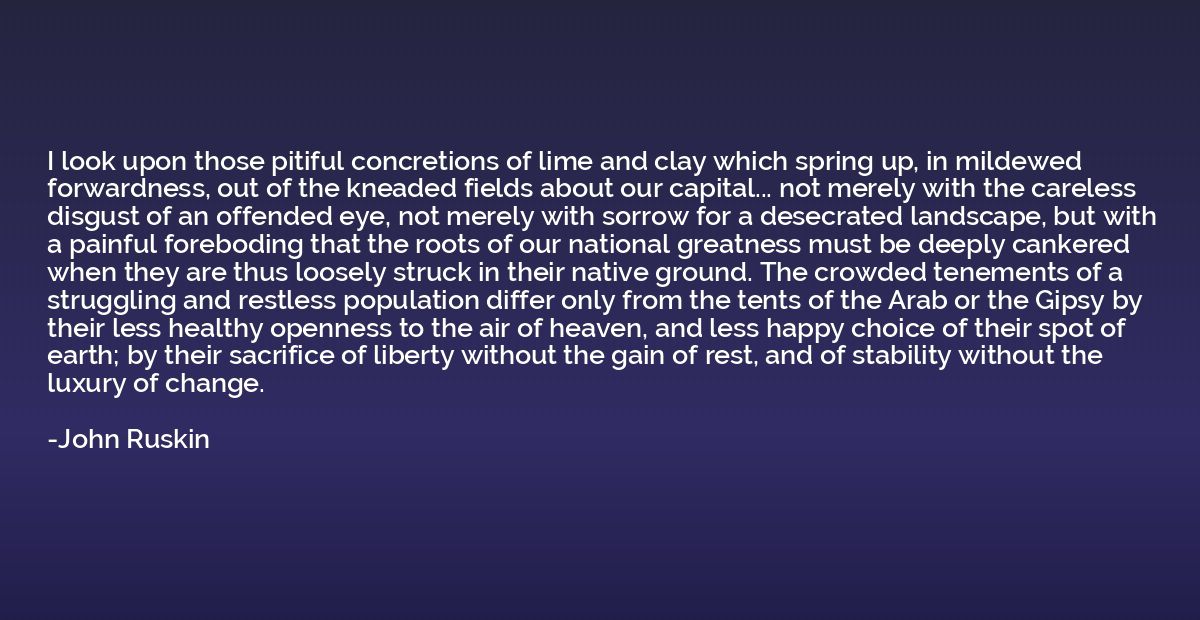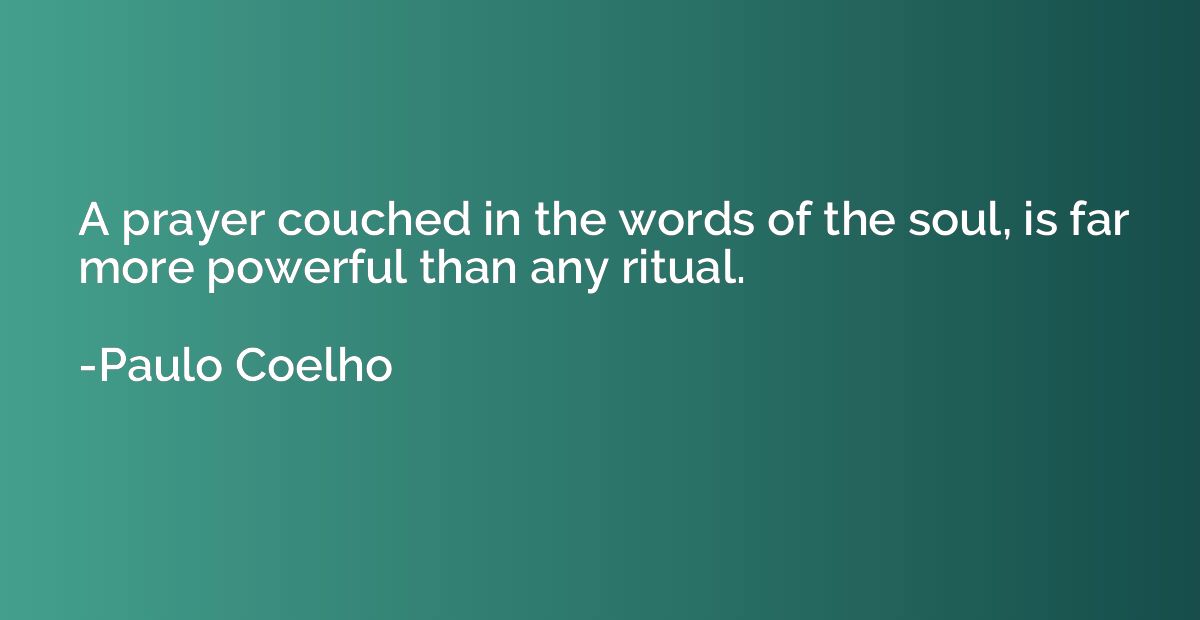Quote by John Ruskin
I look upon those pitiful concretions of lime and clay which spring up, in mildewed forwardness, out of the kneaded fields about our capital... not merely with the careless disgust of an offended eye, not merely with sorrow for a desecrated landscape, but with a painful foreboding that the roots of our national greatness must be deeply cankered when they are thus loosely struck in their native ground. The crowded tenements of a struggling and restless population differ only from the tents of the Arab or the Gipsy by their less healthy openness to the air of heaven, and less happy choice of their spot of earth; by their sacrifice of liberty without the gain of rest, and of stability without the luxury of change.

Summary
In this quote, the author expresses a critical perspective on urbanization and the development of the capital city. They describe the buildings as pitiful and lacking structural integrity, with an air of mildew and decay. The author is not simply disgusted by what they see but rather is filled with a deep sense of concern for the nation's future. They believe that a nation's greatness is compromised when its foundations, both physically and metaphorically, are weak and easily tainted. The author further argues that the densely populated tenements, similar to Arab or Gipsy tents, are deprived of fundamental aspects such as fresh air, freedom, and stability.
By John Ruskin














